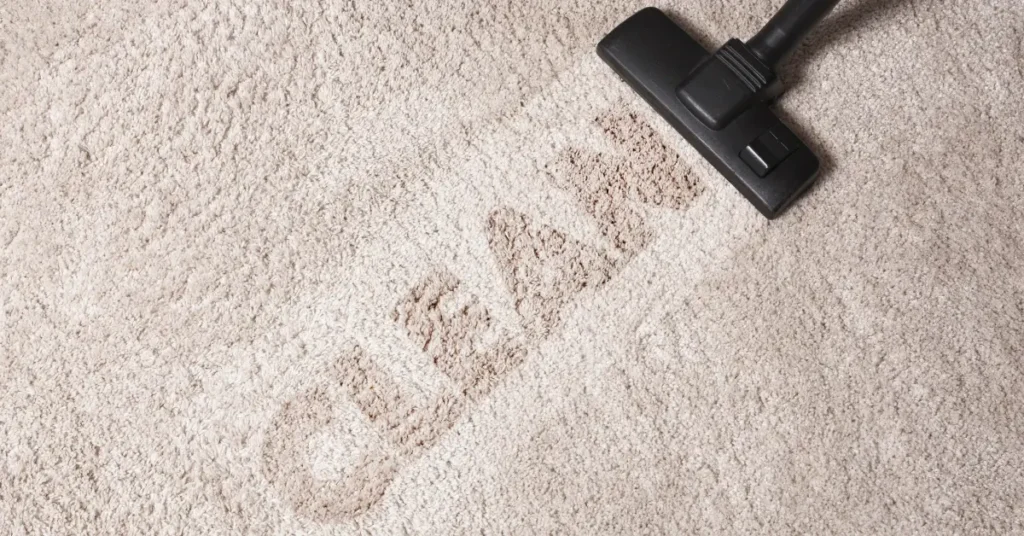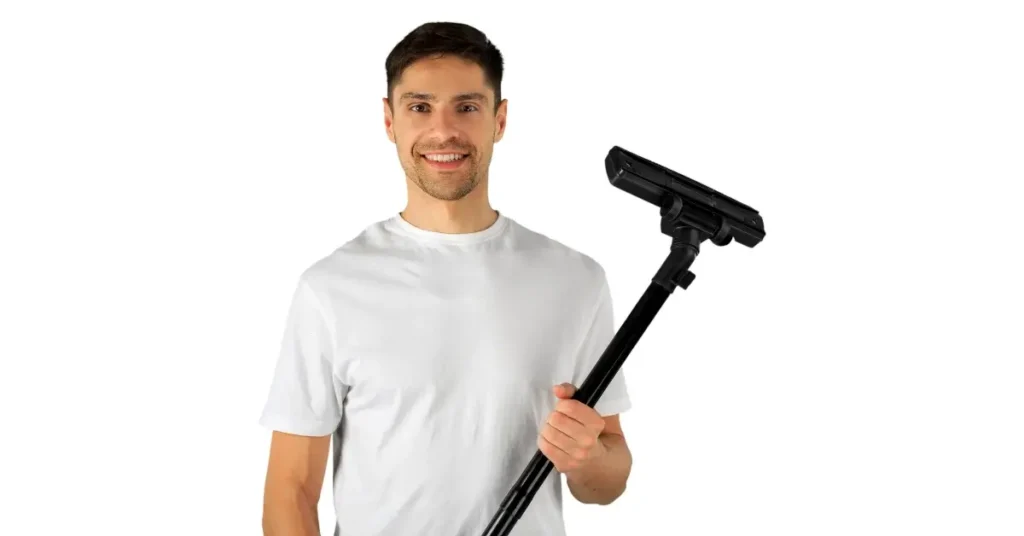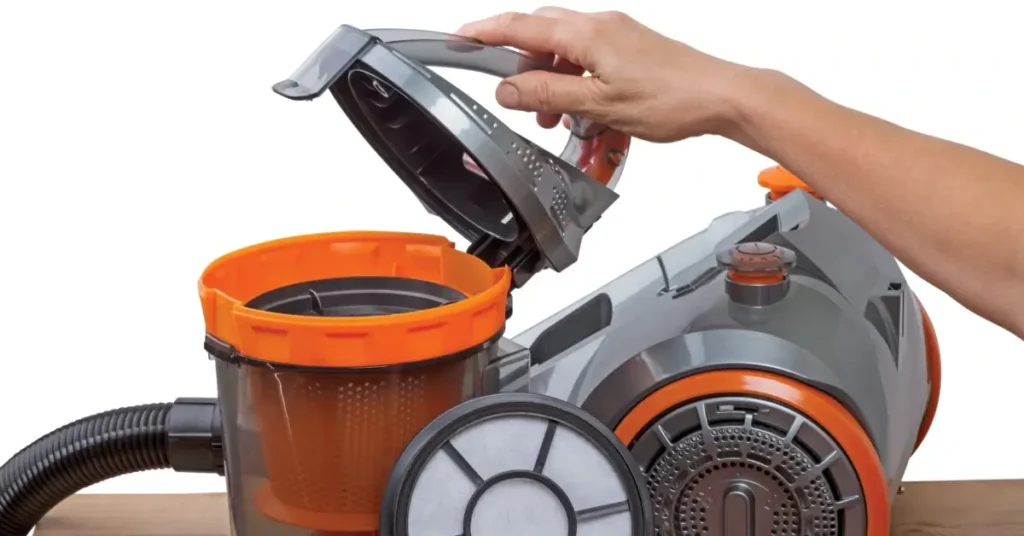As a homeowner, one of the most essential tools you need for maintaining a clean and healthy living environment is a good vacuum cleaner. However, purchasing a vacuum cleaner is not a small investment, and you want to make sure that you get your money’s worth. So, how long should a vacuum last?
The answer to this question is not straightforward as it depends on several factors. According to Consumer Reports, the median lifespan of a vacuum cleaner is eight years. However, this number can vary depending on the brand, model, and how well you maintain your vacuum. Some vacuums can last up to 12 years if well-maintained.
The lifespan of your vacuum also depends on how often you use it and the type of flooring you have. If you have a large family and pets, you might need to replace your vacuum more often than someone who lives alone and has no pets. Additionally, if you have carpets, your vacuum will have to work harder, and you might need to replace it sooner than if you have hardwood floors. In the following paragraphs, we will dive deeper into these factors and what you can do to extend the life of your vacuum cleaner.
Understanding Vacuum Lifespan

Firstly, the lifespan of a vacuum cleaner varies depending on the brand, model, and usage. According to Consumer Reports, the median lifespan of a vacuum cleaner is eight years. However, some vacuums can last up to 20 years with proper maintenance and care. On the other hand, some cheaper models may only last a few years.
Secondly, the frequency of use and the type of surface you are vacuuming also affects the lifespan of a vacuum cleaner. If you vacuum daily, your vacuum cleaner may not last as long as someone who vacuums once a week. If you have carpets, your vacuum cleaner may wear out faster than if you have hardwood floors.
Thirdly, the maintenance of a vacuum cleaner is crucial to its lifespan. Regular cleaning and maintenance can extend the life of your vacuum cleaner. For example, replacing the filter, cleaning the brush roll, and checking for blockages can help your vacuum cleaner last longer.
In conclusion, the lifespan of a vacuum cleaner depends on various factors, including brand, usage, surface, and maintenance. By taking proper care of your vacuum cleaner, you can help it last longer.
Factors Affecting Vacuum Lifespan
As a homeowner, you want to make sure that your vacuum lasts as long as possible. After all, vacuums aren’t cheap, and replacing them every few years can be a hassle. But how long should a vacuum last? And what factors can affect its lifespan?
First and foremost, the brand and model of your vacuum can have a significant impact on its lifespan. While some brands may be known for their durability, others may have a reputation for breaking down after just a few years. When shopping for a vacuum, it’s important to do your research and choose a brand and model that has a good track record for longevity.
Another factor that can affect a vacuum’s lifespan is maintenance. Regular maintenance, such as replacing filters and cleaning out the dustbin, can help prolong the life of your vacuum. Neglecting maintenance, on the other hand, can cause your vacuum to break down prematurely.
Frequency of use is also an important factor to consider. If you have a large home or pets that shed a lot, you may need to use your vacuum more often than someone with a smaller home or no pets. Using your vacuum too frequently can cause it to wear out faster, so it’s important to find a balance that works for your home.
Finally, the type of vacuum you choose can also impact its lifespan. Upright and canister vacuums tend to last around eight years, while stick vacuums last five to eight years, robot vacuums last three to five years, and handheld vacuums last two to three years. Choosing the right type of vacuum for your home and needs can help ensure that it lasts as long as possible.
Overall, there are many factors that can affect how long a vacuum lasts. By choosing a durable brand and model, performing regular maintenance, finding the right balance of use, and choosing the right type of vacuum, you can help ensure that your vacuum lasts for many years to come.
How to Extend Vacuum Lifespan

As someone who cares about keeping my home clean, I know how important it is to have a reliable vacuum cleaner. After doing some research, I found out that the average lifespan of a vacuum cleaner is around 8 years according to Consumer Reports. But with proper care and maintenance, you can extend the lifespan of your vacuum and save money in the long run.
First things first, always follow the manufacturer’s instructions when it comes to maintaining your vacuum. Here are some additional tips that can help you extend the lifespan of your vacuum:
- Empty the dustbin regularly: A full dustbin can reduce the suction power of your vacuum. Empty it after every use or when it’s half full.
- Clean the filters: Dirty filters can also reduce suction power. Check your vacuum’s manual to see how often you should clean or replace the filters.
- Replace the brush roll: The brush roll is what picks up dirt and debris from your floors. Over time, it can get tangled with hair and thread, reducing its effectiveness. Replace it every 12 to 18 months.
- Check the hoses and attachments: Make sure they’re not clogged with dirt or debris. Clean them out if necessary.
- Store your vacuum properly: Keep it in a dry place and away from direct sunlight. Don’t wrap the cord around the vacuum as this can damage it.
By following these tips, you can help extend the lifespan of your vacuum and keep it running smoothly for years to come. Remember, proper maintenance is key to getting the most out of your investment.
Common Signs of a Dying Vacuum

As someone who has owned several vacuum cleaners over the years, I know how frustrating it can be when your trusty cleaning companion starts to show signs of wear and tear. But how long should a vacuum last, and when is it time to replace it?
Here are some common signs that your vacuum is on its last legs:
1. Loss of suction
One of the most obvious signs that your vacuum is dying is a loss of suction. If your vacuum isn’t picking up dirt and debris like it used to, it may be time to replace it. This could be due to a clogged filter, a worn-out brush roll, or a damaged hose.
2. Strange noises
Another sign that your vacuum may be on its way out is strange noises. If your vacuum is making loud or unusual sounds, it could be a sign that the motor is failing or that there is a blockage in the hose or brush roll.
3. Overheating
If your vacuum is overheating or shutting off unexpectedly, it could be a sign that the motor is struggling to keep up with the demands of the job. This could be due to a clogged filter, a damaged hose, or a worn-out motor.
4. Broken or damaged parts
If your vacuum has broken or damaged parts, such as a cracked hose or a broken brush roll, it may be time to replace it. While some parts can be replaced, others may require a new vacuum altogether.
In conclusion, knowing how long should a vacuum last is important, but recognizing the signs of a dying vacuum is just as crucial. If you notice any of these signs, it may be time to start shopping for a new vacuum cleaner.
Choosing a Long-Lasting Vacuum
As someone who has gone through multiple vacuums in the past, I understand the frustration and inconvenience of having to replace them frequently. That’s why it’s important to choose a vacuum that will last you a long time. But with so many options out there, how do you choose the right one?
First and foremost, it’s important to consider the brand and model. According to a recent reliability survey, vacuums last a median of eight years, but this number varies widely by brand. Some brands may last longer than others, so it’s important to do your research before making a purchase.
Another factor to consider is the type of vacuum. Upright vacuums are the most common type and can last for at least eight years with proper maintenance. Canister vacuums are also a good option and can last even longer if well-maintained. Stick vacuums and handheld vacuums are more portable and convenient, but may not last as long as their larger counterparts.
In addition to the brand and type, it’s important to consider the features of the vacuum. Look for a vacuum with a high-quality motor, as this is the heart of the machine. A vacuum with a HEPA filter is also important, as it can trap small particles and allergens. Other features to look for include adjustable suction power, a long power cord, and a variety of attachments.
Finally, it’s important to properly maintain your vacuum to ensure it lasts as long as possible. This includes regularly cleaning the filter, replacing the bag or emptying the canister, and checking for any damage or wear and tear.
In conclusion, choosing a long-lasting vacuum requires careful consideration of the brand, type, features, and maintenance. By doing your research and investing in a high-quality vacuum, you can save yourself time and money in the long run.
FAQ
How often do people replace their vacuums?
The lifespan of a vacuum cleaner varies depending on the type and usage. Generally, upright vacuums last around 5 years, while canister vacuums can last up to 10 years. Some experts suggest replacing a vacuum every 3-5 years, depending on usage and signs of wear and tear.
Do vacuums lose suction over time?
Yes, vacuums can lose suction over time due to a variety of reasons such as a full bag or canister, clogged filters, cracks or holes, or a malfunctioning rotating brush. Regular maintenance and cleaning can help prevent loss of suction.
Should you vacuum slowly?
Yes, vacuuming slowly can help the machine suck up more dirt and dust, and ultimately get your carpets much cleaner. Slow vacuuming allows the brush to agitate the carpet properly and suck up the unclean bits that emerge.
If you liked this blog article about the topic: How Long Should a Vacuum Last, don’t forget to leave us a comment down below to tell us about your experience.
If you are planning to get a robot vacuum cleaner, take a look at our blog on the subject “Roborock S8 vs S7“.



